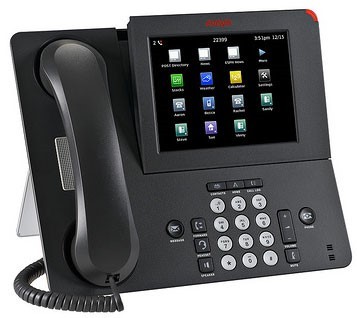There are several merits to using a Voice over Internet Protocol phone systems, or VoIP—also called a cloud phone system. It’s important to know what you can get from a VoIP system as well as what the options are out there for your business. ![]() There are plenty of choices when it comes to VoIP hardware, but only a select few that can give your business the boost it needs.
There are plenty of choices when it comes to VoIP hardware, but only a select few that can give your business the boost it needs.
The first things to ask yourself as you build the foundation for your business’s phone system is what do I need? There are many devices to choose from, so long as you pay attention to cost, the bandwidth, and the overall, long-term maintenance. The best thing about VoIP is that it requires very little additional hardware, you can likely upgrade the necessary software into your existing online infrastructure and it works great with you mobile devices (i.e. cell phones, tablets, portable laptops, etc.).
VoIP converts data, in particular, your voice, into a digital signal and then transmits that signal over the internet. The benefits to this is that the system uses the existing internet connection as a way to make free phone calls. You’re transmitting your voice over the Ethernet like you send an email, avoiding the phone companies and the subsequent service charges.
VoIP hardware is some commonly seen in these three versions:
- ATAs and DTAs: Analog Telephone Adaptors (ATA) and Digital Telephone Adaptors (DTA) allow the connection of a standard phone with a computer or internet connection. These require high-end routers to hard wire connect your computers and existing digital phones to the internet. This is commonly referred to as an analog-to-digital conversion. Companies like Avaya have a series of 3500 to 8000 series routers that make communications online a snap for midsize companies. The larger Virtual Series Ethernet switches are more for larger, global companies.

- IP Phones: These are specialized phones that look like everyday phones but come with a handset, cradle and more buttons to press. IP phones connect directly to a router, either with a cable or through Wi-Fi, and already have the hardware and software necessary to make full IP voice calls. The versatility of these models allows callers to connect from any Wi-Fi hot spot. Avaya Solutions has a series of great IP Desk phones from the 1100 series, all the way up to the 9000 series cordless phones. They also have added phone features like IP voice and video conferencing.

- Computer-to-computer, or Internet Connected Services: Possibly the easiest and most recognizable way to use VoIP. All you need is a computer with an internet connection and the necessary software to allow VoIP calls. The biggest questions here are the level of bandwidth and the support technology to make quality phone calls. The rule of thumb is for every user on the system, allow for a good 100 Kbps to maintain the call and quality.

Facts about VoIP Phone Systems
There are a few key things to keep in mind when you’re looking at a VoIP phone system, especially if you’re on a budget or may be upgrading your system to integrate the existing digital phone lines with VoIP:
- You can still use your existing phone system. Just make sure that the infrastructure can handle the amount of volume you bring in through your customers and contacts, as well as, the future business connections your VoIP system will inspire.
- You can avoid the desktop IP desk phones and use your mobile phones, tablets and laptop computers. All you need is to download the necessary software and applications. This is called adding in a “softphone”. Avaya has a Business client suite called IP Office that makes this integration easy and accessible on multiple devices.
- If you need specialized phones that have certain features for conference, video, and text conferencing, and also works internationally or connects several devices together, simultaneously, there are several providers that make this easy and cost effective.
Avaya Solutions’ IP Office, for midsize companies, lets the business directly maintain and provide cloud based services to their clients. For larger companies, there’s Avaya Aura, which uses UCaaS (Unified Communications as a Service), where Avaya will control and maintain the system so your business can focus on the multiple aspects to your products and services without having to manage multiple platforms from different vendors. Your business can scale flexibly and easily to lower costs and manage customer relations.
For more information on how you can use Avaya VoIP phone systems for your business, contact us for a consultation.